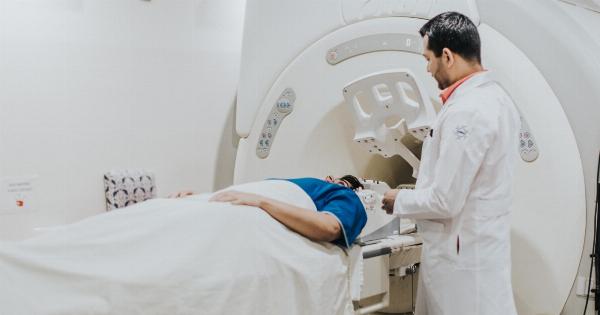Dizziness is a common sensation that can affect people of all ages. It is characterized by a spinning or lightheaded feeling, often accompanied by a loss of balance or unsteady gait.
Dizziness can be a symptom of various underlying conditions, ranging from minor issues to more serious medical conditions. Understanding the causes and seeking appropriate treatment is essential for managing and alleviating dizziness symptoms effectively.
1. Inner ear disorders
One of the most common causes of dizziness is inner ear disorders. The inner ear plays a crucial role in maintaining balance, and any disruption in its function can lead to dizziness. Common inner ear disorders include:.
- Benign Paroxysmal Positional Vertigo (BPPV): This occurs when small calcium crystals in the inner ear become dislodged and disrupt the normal fluid movement, resulting in dizziness when moving the head or changing positions.
- Meniere’s Disease: Meniere’s Disease is a chronic disorder that affects the inner ear’s fluid balance, leading to feelings of vertigo, tinnitus (ringing in the ears), and hearing loss.
- Labyrinthitis: This condition occurs due to inflammation of the inner ear, most commonly caused by a viral infection. It can result in dizziness, hearing loss, and nausea.
2. Medications
Dizziness can also be a side effect of certain medications. The use of medications such as antidepressants, antipsychotics, sedatives, and medications for high blood pressure can cause dizziness as a common side effect.
If dizziness is experienced after starting a new medication, consulting a healthcare professional is advisable to explore alternative options or adjust the dosage.
3. Dehydration and low blood sugar
Inadequate fluid intake or dehydration can lead to a drop in blood pressure, which can result in dizziness.
Similarly, low blood sugar levels can also cause dizziness, especially in individuals with diabetes or those who have gone without eating for an extended period. Staying hydrated and maintaining regular meals can help prevent dizziness caused by these factors.
4. Anemia
Anemia is a condition characterized by a low red blood cell count or insufficient hemoglobin to carry adequate oxygen throughout the body. Lack of oxygen supply to the brain due to anemia can lead to dizziness, fatigue, and other symptoms.
Treating the underlying cause of anemia and addressing the iron deficiency through diet or supplements can help alleviate dizziness associated with anemia.
5. Anxiety and panic disorders
Mental health conditions like anxiety and panic disorders can manifest in physical symptoms, including dizziness. The physiological response to stress and anxiety can lead to a sensation of lightheadedness or dizziness.
Managing stress levels through relaxation techniques, therapy, and medication can help reduce dizziness associated with these conditions.
6. Cardiovascular conditions
Dizziness can be an indicator of various cardiovascular conditions that affect blood flow, such as:.
- Orthostatic hypotension: This occurs when the blood pressure drops significantly upon standing up, causing dizziness and sometimes fainting.
- Arrhythmias: Irregular heart rhythms can disrupt the blood flow to the brain and lead to dizziness.
- Heart attack: A heart attack can cause dizziness, among other symptoms, due to the compromised blood flow to the brain.
If cardiovascular conditions are suspected as the cause of dizziness, seeking immediate medical attention is crucial to prevent complications.
7. Migraines
Migraines can cause intense headaches, sensitivity to light and sound, and dizziness. These debilitating episodes can last for hours or even days.
Identifying triggers and managing migraines with medications prescribed by a healthcare professional can help reduce dizziness and other associated symptoms.
8. Vestibular Neuritis
Vestibular neuritis is inflammation of the vestibular nerve, usually caused by a viral infection. It can lead to dizziness, vertigo, and difficulties with balance.
Treatment often involves medications to reduce inflammation and physical therapy exercises that help compensate for the balance issues.
9. Motion sickness
Many people experience dizziness and nausea when exposed to certain types of motion, such as traveling in cars, boats, or airplanes.
Motion sickness occurs when the brain receives conflicting signals from the eyes, inner ears, and other sensory receptors. Remedies for motion sickness include anti-nausea medications, avoiding reading or looking at screens while in motion, or focusing on the horizon.
10. Tumors
Although rare, tumors in the brain or inner ear can cause dizziness. If dizziness is persistent, accompanied by other concerning symptoms such as hearing loss or headaches, it is important to seek medical evaluation to rule out any underlying tumors.
Treating Dizziness
The treatment for dizziness depends on its underlying cause. In some cases, simply addressing the root cause may alleviate symptoms. However, specific treatment options may include:.
- Medications: Medications like antihistamines, antiemetics, or benzodiazepines might be prescribed to manage dizziness associated with certain conditions.
- Vestibular rehabilitation: Physical therapy exercises that aim to strengthen the vestibular system and improve balance can be beneficial for individuals experiencing dizziness.
- Fluid and electrolyte balance: Addressing dehydration or imbalances in electrolytes through appropriate hydration and diet adjustments can help reduce dizziness.
- Surgical interventions: In severe cases, certain conditions like inner ear disorders, tumors, or cardiovascular issues may require surgical intervention to alleviate dizziness symptoms.
If you experience dizziness frequently or if it interferes significantly with your quality of life, it is essential to consult with a healthcare professional for an accurate diagnosis and appropriate treatment plan.




























